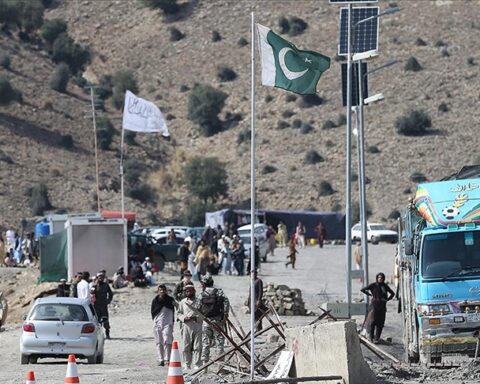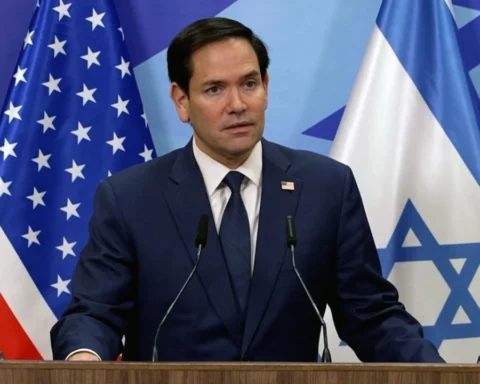As the world undergoes sweeping geopolitical realignments, the Middle East, too, is transforming rapidly — but not in the way Israeli and American officials had imagined. Even if the fragile Gaza truce holds, the current convergence between Washington and Tel Aviv is unlikely to last. Israel believes it stands at the peak of its regional power, yet a deeper look reveals the opposite: the country lacks both the capacity to construct a “New Middle East” and the ability to impose an order of its own design.
Israel today faces a dual crisis — of existence and legitimacy — that extends far beyond external challenges. The country’s internal divisions, mass protests against Prime Minister Netanyahu, the collapse of public trust, and political disarray after the Gaza war have exposed the fragility of its democratic and social foundations. Such internal fractures render Israel incapable of acting as an “architect” of a new regional order.
The devastation of Gaza has dramatically eroded Israel’s standing in the world. Meanwhile, a renewed wave of global attention to the Palestinian cause — from North Africa to the Gulf — has left Israel more isolated than at any point in recent history. The belief that legitimacy can be substituted with sheer military power is proving to be an illusion. No regional order built on coercion can endure.
In an age dominated by global media, social networks, and civil movements, Israel cannot bomb or occupy its way into a “stable order.” For its potential Arab partners in the Gulf, Israel has lost not only its aura of power but also its credibility and the ability to provide meaningful security guarantees — both essential elements for any sustainable regional system.
Despite its efforts to project strategic independence, every major regional player — from Tehran to Riyadh — knows that Israel remains deeply dependent on the United States. Its most crucial military, economic, and political capabilities are intertwined with Washington’s support.
The Gaza war made this dependency explicit. Israel’s shortage of Iron Dome interceptors before the conflict’s end revealed how heavily it relies on American logistics and supply chains. Repeated emergency requests for US weapons and ammunition over the past two years have shown that Israel cannot sustain prolonged military operations on its own.
The Wall Street Journal bluntly noted that Israel’s ties with Gulf states are eroding due to this dependence and the internal turmoil it faces. Arab governments — particularly the UAE, Saudi Arabia, and Qatar — have closely observed these vulnerabilities. They increasingly doubt that Israel can serve as a stable pillar of regional security, let alone lead the creation of a new Middle East order.
Since its founding, Israel has been driven by a survivalist logic in which military force is seen as the ultimate solution to every problem. Its security doctrine remains based on “overwhelming superiority” and “deterrence through preemption.” Yet recent experience — from Gaza to Lebanon to the West Bank — shows this doctrine no longer works.
Israel’s failure to resolve the Palestinian question is not tactical but structural. The country’s internal political evolution — toward greater religious fundamentalism and ethnonationalism — has locked it into a permanent state of conflict. The ruling coalitions’ alliances with far-right religious factions have rendered any genuine peace initiative politically impossible.
A state that defines itself in exclusivist religious and ethnic terms cannot build a “new regional order.” In a region as socially and demographically diverse as the Middle East, such a vision only breeds more instability, violence, and political paralysis.
Israel’s statehood is deeply rooted in a Zionist ideology that emphasizes Jewish ethnic and religious superiority while marginalizing Arab and Palestinian citizens. From its inception, this ideological foundation has cast Israel as a “civilisational outsider” within the region.
How can a state defined by religious exclusivity and military occupation lead a regional order composed mostly of Arab and Muslim societies? No lasting order can emerge around a state that millions of Arabs view as a symbol of occupation, apartheid, and systemic discrimination.
This trust deficit has worsened dramatically since the Gaza war. Arab governments — acutely aware of domestic public opinion — now fear that overt alignment with Israel could undermine their own legitimacy. The “normalisation” momentum that followed the Abraham Accords has stalled, replaced by caution and recalibration.
One of Israel’s post-Abraham Accords ambitions was to build an Arab–Israeli security bloc. That dream has faded. Following Israeli airstrikes near Doha, regional media reported that Qatar is reassessing its security ties with Tel Aviv. Kuwait has issued formal security warnings; Oman has openly called Israel a source of instability; even the UAE is quietly re-evaluating its relationship.
Gulf leaders now recognise a hard truth: Israel can neither guarantee their security nor contain Iran, nor construct a credible and lasting security umbrella. Consequently, the Israeli project for a “New Middle East” — a US- and Israel-centered regional order — is now in steep decline.
Israel’s strategic thinking suffers from a recurring historical error — the same hubris that preceded the 1973 Yom Kippur War, when it assumed no Arab state would dare to strike again. Today, it believes that because it has avoided severe punishment for Gaza’s destruction, no real costs will follow. This is a dangerous delusion.
The Gaza war has revealed Israel’s limits:
Its economy buckles under prolonged conflict,
Its military depends on foreign resupply,
Its global legitimacy is eroding, and
Its domestic unity is fracturing.
Under these conditions, Israel cannot construct a “new Middle East.” Instead, it has become one of the main obstacles to the emergence of a sustainable regional order.
Israel’s vision of a “New Middle East” has proven to be little more than a political myth. Regional governments may exchange polite diplomatic smiles with Tel Aviv, but none view it as the legitimate architect of the region’s future.
If Israel continues down its current path — defined by militarism, occupation, dependence on Washington, and disregard for legitimacy — it will not only forfeit its claim to regional leadership but also see its broader international position further erode.
The path ahead for Israel, and for the region, is clear. Either it accepts an order based on legitimacy, justice, and genuine peace — or it faces deepening isolation, instability, and an even larger crisis that it will ultimately be unable to contain.
In short, the “New Middle East” imagined by Israel was stillborn — undone by the very contradictions within the Israeli state itself.






